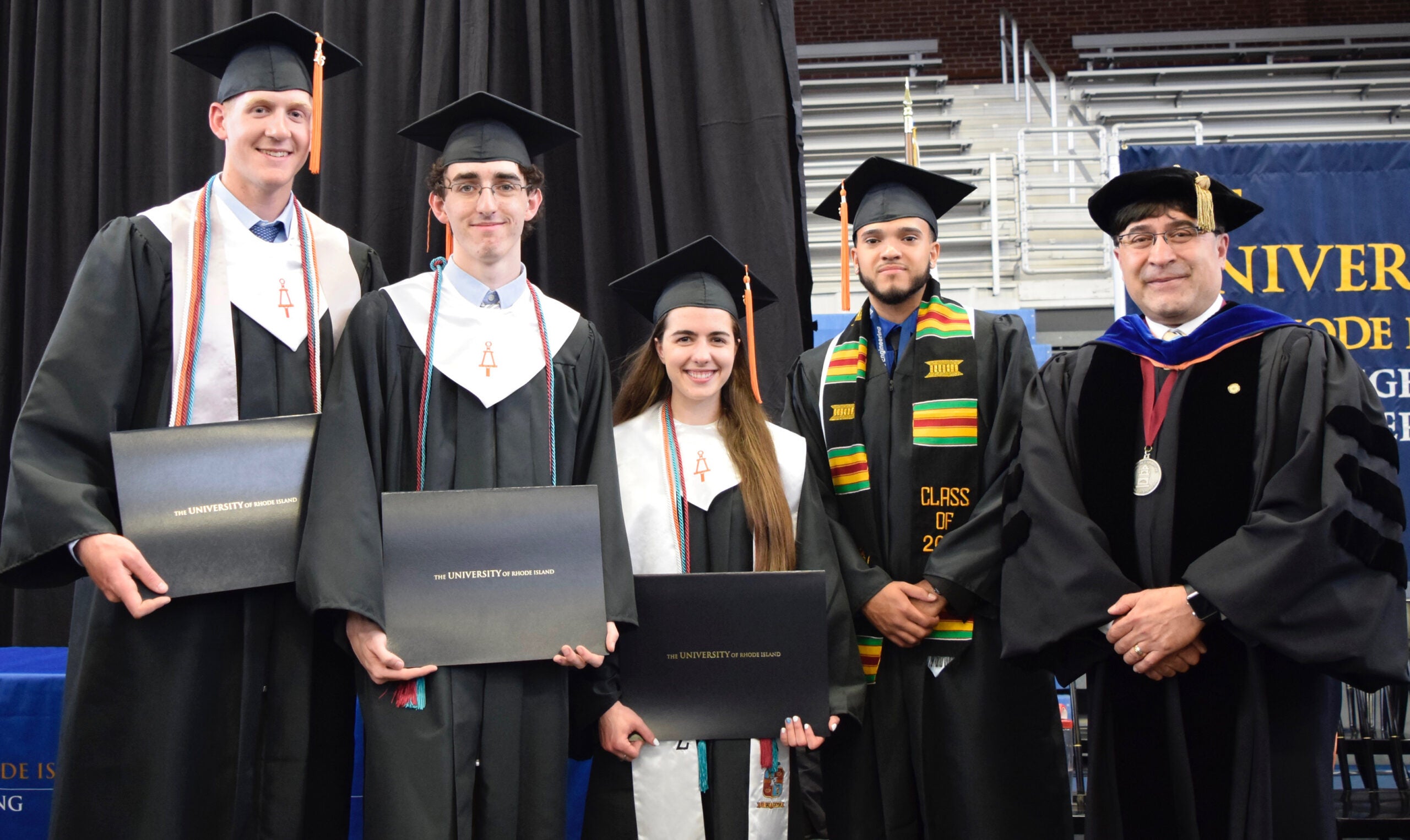KINGSTON, R.I., June 27, 2016—A team of University of Rhode Island engineering students has won first place in the University Design Competition for Addressing Airport Needs, a prestigious national contest sponsored by the Federal Aviation Administration.
The students refined a device created by URI engineering students two years ago that can prevent wingtips on planes from colliding while the aircrafts are being towed on the ground. The earlier device won the FAA competition in 2014.
The students on the winning team are Laura Corvese of Portsmouth, Mitchell Contente of Bristol, Cody McMillian of Portsmouth and Gilbert Resto of Providence. They all graduated from URI in May with degrees in mechanical engineering.
They worked on the “Wingman 360’’ during a yearlong senior capstone design project taught by URI Engineering Professor Bahram Nassersharif.
“This is an extremely challenging competition with the best universities in the United States participating,’’ said Nassersharif. “My students on this design team worked very hard and came up with a winning design proposal. I am very proud of them. This is our third consecutive first-place win at this annual competition. I think this speaks to the high caliber of our students, as well as the excellent mechanical engineering program at URI.”
Last year, URI engineering students won the contest for a drone detection and tracking system to address the problem of drones colliding with aircraft in no-fly zones.
The Wingman 360 is a 5-pound, plastic device that attaches with suction cups to a plane’s wingtip. Ultrasonic sensors in the device detect when the aircraft is getting too close to another plane on the ground.
In 2014, URI engineering students created a device, but it was only capable of a maximum detection angle of 90 degrees and better suited for small planes.
Wingman 360 has a 180-degree field of view. Also, the device sends a signal to a module on the tug’s dashboard, triggering a buzzer and lights. The warning lights and sounds on the old device had to be seen by the worker towing the aircraft.
Delta Airlines is so enthusiastic about the project it sponsored the capstone design program for mechanical engineering.
The team will travel to Washington, D.C. Aug. 11 to present its invention to FAA officials during a ceremony at the Keck Center of the National Academies. The students will share $2,500 for the award.
“The design was reviewed by a panel of experts from the FAA, industry and academia,’’ said Lawrence D. Goldstein, senior program officer of the Transportation Research Board. “The review panel cited the team’s good design process that looked at a lot of ideas and tested them. There were good interactions with aircraft manufacturers and airport operators. The team also did an excellent job building on a winning design concept previously submitted by URI.’’
The Airport Cooperative Research Program is sponsored by the FAA and managed by the National Academies of Sciences, Engineering and Medicine through the Transportation Research Board. Virginia Space Grant Consortium of Hampton, Va., manages the contest.
Partnering organizations are the American Association of Airport Executives; Airport Consultants Council; Airports Council International—North America; National Association of State Aviation Officials; and the University Aviation Association. The groups develop contest guidelines, provide expert advisers for teams, and participate in design reviews. Volunteers for the airport industry, academics and FAA representatives select the winning proposals.

